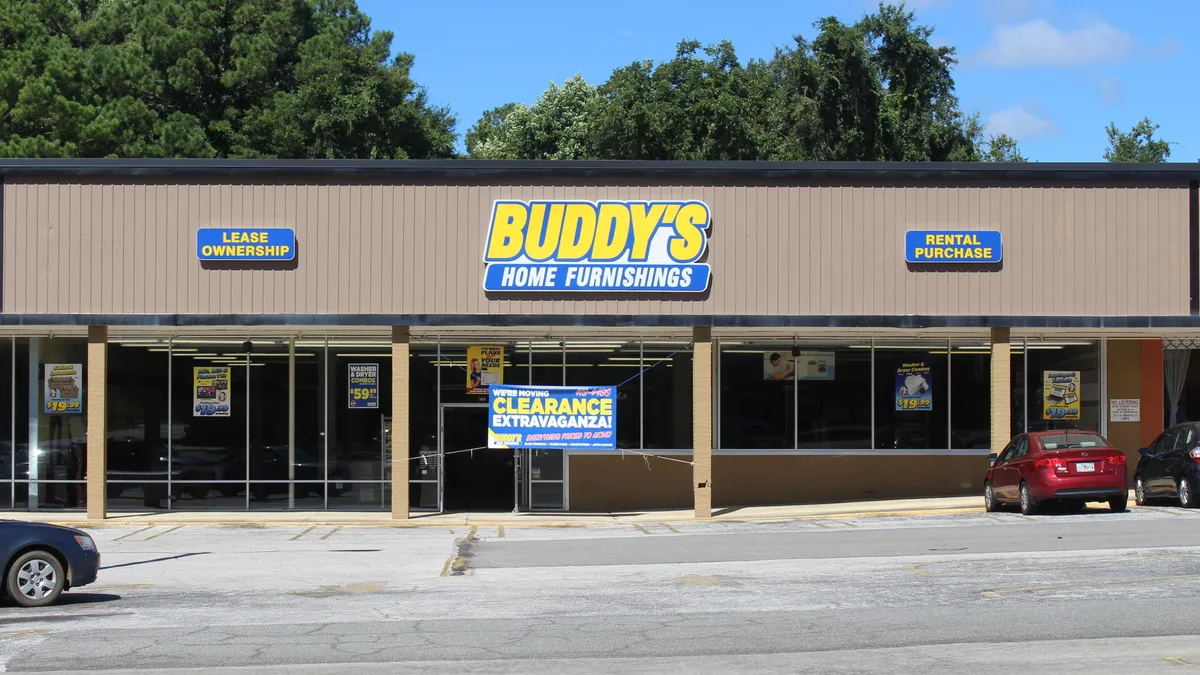Dive Brief:
-
Bebe Stores in a Wednesday press release announced the purchase of 47 Buddy's Home Furnishings rent-to-own franchises from Franchise Group, plus the rights to "additional franchises in protected geographies" in the Southeastern U.S., for $35 million. ("Protected geographies" refers to franchising rights in a given area.)
-
In its own release, Franchise Group said the agreement includes plans for Bebe to open 20 new Buddy's locations.
-
Bebe is paying for the deal with a 1.5 million share purchase by B. Riley Financial at $5 per share, a $22 million secured loan led by investment firm Milfam and cash on hand. Franchise Group said it will pay down debt with the proceeds, and that the deal will reduce its annual revenue by about $35 million, excluding the impact of future Bebe store openings.
Dive Insight:
This is one way to take part in the home category boom that has been fueled by the pandemic.
Bebe CEO Manny Mashouf called the move "a transformational acquisition" that diversifies its profit stream and "better utilizes existing net operating loss carryforwards." The expanded operational infrastructure being put into place for it "can be leveraged to support additional acquisitions of high free cash flow entities in the future," he also said.
Franchise Group (previously known as Liberty Tax) last year bought up Sears Hometown Outlet Stores, just after acquiring Buddy's itself. The company, which has been investigated by the Internal Revenue Service and the Department of Justice for its practices, in 2019 also agreed to buy supplement retailer The Vitamin Shoppe for $208 million.
The juxtaposition of a Euro-fashion brand like Bebe and a strip-center rent-to-own furniture franchise may be jarring, but it's also a reflection of how retail has become even more of a cutthroat enterprise during the pandemic, according to analyst Kristin Bentz, president of KB Advisory Group. She compared it to a "side hustle" like renting out a room in your house through Airbnb when times are tough.
Bebe, on the brink of bankruptcy three years ago, closed all its stores and expanded its partnership with Bluestar Alliance by turning over its intellectual property rights, international wholesale agreements and e-commerce URLs to their joint venture. Last year the brand was revived online.
"This is an example of how Darwinian retail companies have to be right now," Bentz said by phone. "It's not just direct to consumer, it's not just supply chain management, it's not just social media — you have to be just so nimble in how you operate. Yes, rent to own is a little bit different from The RealReal or Farfetch. Cosmetically, it's not the prettiest deal. But in this pandemic, especially going into the second surge of it, there are no points for style. There is an air of desperation out there, so in a way, good on them, you're thinking."















